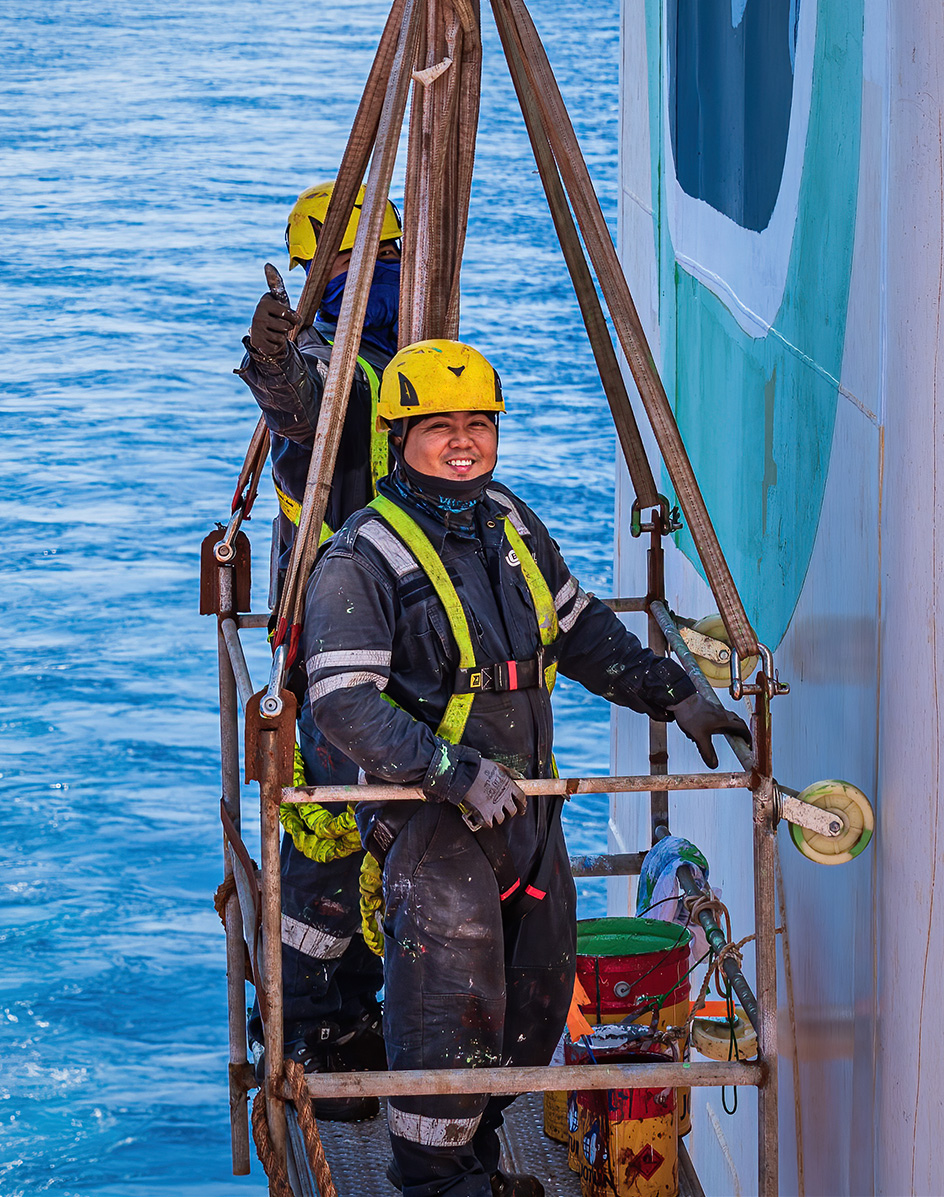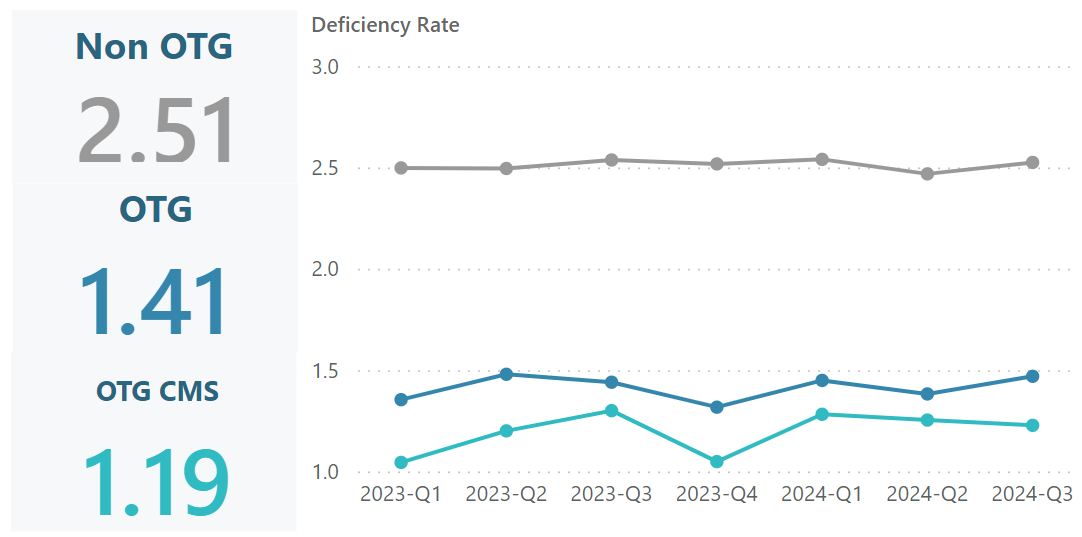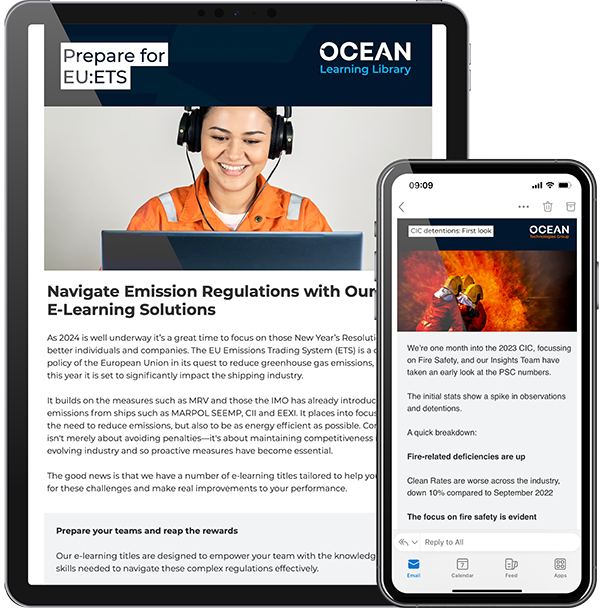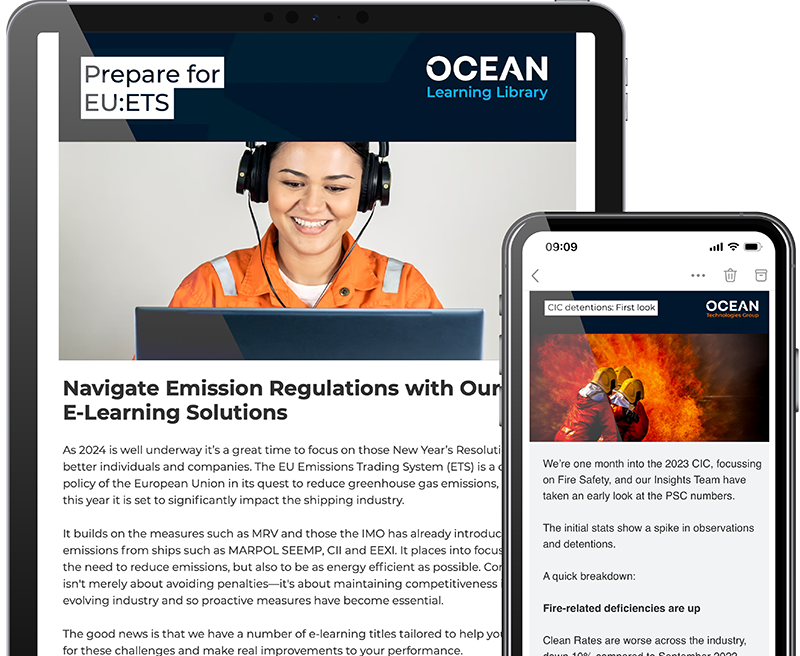Building Competence: The Foundation for Future Success
The following article is based on a presentation OTG Chief Creative Officer Raal Harris gave at Posidonia 2024, in which he shares details of the impact of competence on safety and performance and looks at how this trend will be amplified as the industry moves forward.
In today’s maritime industry, the importance of competence building is more critical than ever.
At Ocean Technologies Group (OTG), we’ve witnessed firsthand the transformative role competence plays in ensuring the safety, performance, and sustainability of maritime operations.
Our extensive work serving over 20,000 vessels and a million crew members across the globe has given us a unique vantage point into the evolving challenges faced by seafarers and the industry at large.
The maritime sector demands more from its workforce than ever before, yet it is simultaneously grappling with a talent shortage.
Operators expect highly skilled seafarers capable of managing complex technical systems, all while embodying leadership and communication skills that contribute to a healthy onboard culture.
This reality underscores the need for a robust strategy focused on building, developing, and retaining competence within maritime teams.
Investing in People: Human Capital Management (HCM)
At OTG, we believe in the power of Human Capital Management (HCM). In simple terms, this involves treating your workforce as an asset — one that requires careful investment, nurturing, and development.
Maritime professionals are not merely workers tasked with following procedures; they are pivotal to the success of operations, from safety and compliance to the performance of entire fleets.
By investing in their competence, we are ensuring that they, in turn, deliver the high standards of performance our industry demands.
Extensive research, including a report from Thetius, shows that organisations that invest in building competence see significant improvements in safety, performance, and retention.
Investing in competence isn’t just about training. It involves building a development structure and culture where individuals feel valued and empowered to move their careers forward, fostering a sense of loyalty and engagement.
In doing so, companies both grow competence and mitigate the risk of losing talent.

Take the first step towards transforming your crew’s competency.
Competency Management: A Powerful Tool
A cornerstone of building competence lies in the effective use of competency management systems. These systems allow organisations to define the skills and proficiencies required for each role clearly and to assess individuals against these criteria. This approach also moves beyond traditional training for knowledge and understanding and builds in the demonstration of the application of skills. It often tends to include areas of personal development, leadership, and soft skills training — crucial for fostering a positive onboard culture.
One notable evolution in this space is the shift towards assessing behavioural competencies. Technical skills alone are no longer sufficient to address the demands of modern maritime operations. We must also nurture soft skills, such as leadership, communication, and problem-solving. Frameworks, such as the BCAV (Behavioural Competency Guidelines), co-developed by INTERTANKO and OCIMF, aim to codify these competencies, allowing companies to develop well-rounded maritime professionals who are technically proficient and adept in interpersonal interactions.
The Data Speaks: Linking Competence to Performance
The benefits of investing in competence are not hypothetical. Data from Port State Control (PSC) inspections offer a clear indication of the impact competence building can have on performance. When comparing vessels using our training and Competency Management System (CMS) with the broader market, we’ve observed significant reductions in deficiencies and detentions – with OTG customers using CMS having 57% fewer deficiencies than the market average.

The message here is clear: building competence isn’t just a regulatory or operational necessity; it is a competitive advantage. Companies that strategically invest in their people see measurable returns in safety, performance, and, ultimately, business sustainability.
Moving Forward
The future of maritime operations lies in the hands of competent, empowered, and engaged seafarers. By investing in human capital, fostering both technical and behavioural competencies, and leveraging innovative tools like adaptive learning, organisations can create a sustainable workforce prepared to meet the challenges of tomorrow.
At OTG, we are proud to play a leading role in this transformation. Our commitment to building competence and unlocking the potential of maritime professionals ensures that we, and our customers, are prepared for the future of our industry. The time to invest in competence is now — not only to address today’s challenges but to secure long-term success in a rapidly evolving world.
Watch Raal’s presentation from Posidonia here:
Raal Harris, Chief Creative Officer at Ocean Technologies Group addresses the issues of the increasing expectations placed upon seafarers and the difficulties faced in attracting talented candidates to fulfil these expectations.
Raal goes on to explore how to develop strategies to train and upskill those people by investing in them, and ensuring that they are retained in order to safeguard this investment.
Take the first step towards transforming your crew’s competency.

Want to be first to hear all our news?
Subscribe to our Newsletter to keep up to date!

